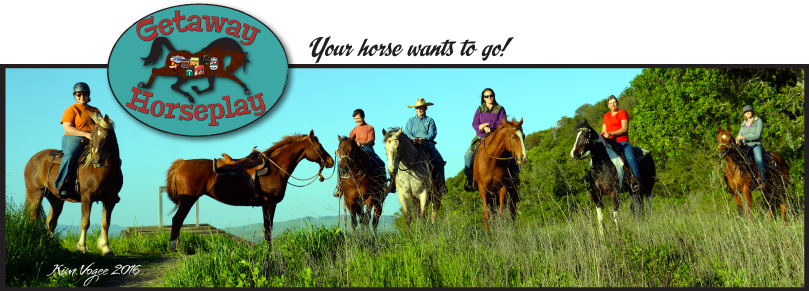Sitting with my coffee on a rainy Sunday, I’m dreaming of my next adventure. I’m wondering if my partner in adventure, Tim the Mustang, who is spending his weekend in a stall, is perhaps thinking about the same thing?
What he doesn’t know is there are only 5 more sleeps to the final Getaway Horseplay Obstacle Challenge weekend in Novato, CA!
Getting ready for the next adventure, I’m sitting here running a little checklist through my mind of what I’ll need to pack. Last spring I had quickly put together a few things for a first aid kit for Tim, but I’m realizing I want to refine and organize a proper kit for myself. I came across a list from Equispirit Trailer Company, and began to put together my own travel first aid kit.
This is what I found:
I’m storing my first aid supplies in a 10 pound bucket with a water proof lid to keep the contents dry. The bucket can be used to carry water, or soak a foot, etc. It’s easy to label, and easy to find (hopefully).
At a bare minimum, my kit will include:
- Non-Stick Telfa Pads
- Exam Gloves
- Tongue Depressors
- Breaking Ice Pack
- Pen Light
- Gauze Squares
- Adhesive Tape
- Cohesive Flexible Bandage – 4″ (Vetrap or Co-flex)
- Thermometer
- Sticky Roll Bandage
- Bandage Scissors
- Antiseptic Soap
- Triple Antibiotic Ointment
- WATER – 10 gallons or more
I may add some of these items:
- Roll Gauze – 4 rolls ( 4″ or 6″)
- Roll Cotton- 2 rolls
- Clean Standing Bandage – 2 quilt or fleece with outer wraps
- Stethoscope
- Mosquito Forceps
- Twitch
- Hydrogen Peroxide
- Antibacterial Spray Powder – Furox Spray
- Ophthalmic Ointment
- Saline Eye Wash – Without cortizone or steriods
- Butazolidin (bute)
- Banamine (granules or paste)
- Knife or utility tool
I’m going to keeping a list of normal vital signs for Tim handy in my trailer:
- Temperature: The normal temperature of a horse can range from 99.5 degrees to 101.5 degrees, with an average of 100 degrees. A fever is classified as mild at 102 degrees and excessive at 106 degrees.
- Respiratory Rate: An adult horse at rest should have a breathing rate ranging from 8 to 16 breaths per minute.
- Pulse: A horse’s normal pulse rate averages 35 beats per minute. Lower rates are normal for larger, older horses at rest. Younger, smaller horses have a higher pulse rate. A yearling has a normal rate of 40 to 58 beats per minute.
- Capillary Refill Time (CRT): It should take 1 to 2 seconds for the membrane to return to the color of the surrounding area. If it takes longer than 1 to 2 seconds, your horse’s circulation is poor, or it may be in shock.
I’m also going to include a Contact List posted in my trailer:
- My Name
- My horse’s name
- Where my horse is stabled
- My Veterinarian’s name and phone number
- Emergency contact name and number
Getaway Horseplay First Aid Kit
I’ve taken the liberty to put together a starter kit for your first aid kit, if you don’t already have one. Stored in a clearly labeled 10 pound bucket, containing the bare minimum supplies you should start your kit with.
Please contact me if you’re interested in purchasing a Getaway Horseplay First Aid Kit for $40 + tax.
See you on the road! Sarah & Tim


